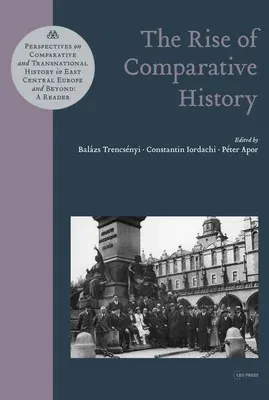Perspectives on Comparative and Transnational History in East Central Europe and Beyond: A ReaderHardcover, 30 May 2021

Qty
1
Turbo
Ships in 2 - 3 days
In Stock
Free Delivery
Cash on Delivery
15 Days
Free Returns
Secure Checkout

Part of Series
Perspectives on Comparative and Transnational History in East Central Europe and Beyond: A Reader
Print Length
418 pages
Language
English
Publisher
Central European University Press
Date Published
30 May 2021
ISBN-10
9633863619
ISBN-13
9789633863619
Description
Product Details
Book Format:
Hardcover
Country of Origin:
HU
Date Published:
30 May 2021
Dimensions:
22.86 x
15.24 x
2.39 cm
Genre:
20th Century
ISBN-10:
9633863619
ISBN-13:
9789633863619
Language:
English
Location:
Budapest
Pages:
418
Publisher:
Series:
Weight:
725.75 gm